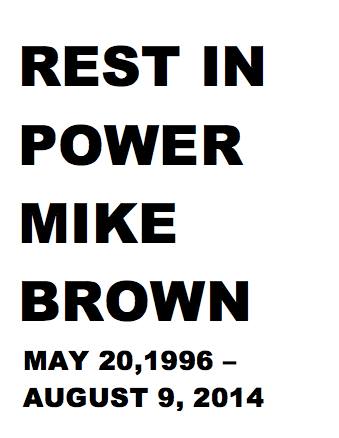Blake administrators handle student protest
Walls taped with numerous posters. Social networks exploding with hurtful posted statuses. Unjust verbal accusations attacked both sides. Opinions ignored, and beliefs disrespected.
On Tuesday, November 25, 2014, a community, days away from being thankful for their lives, became a divided school when the news came of the Grand Jury’s decisions. Almost two months after these incidents, the topic is still present in daily conversations, but through all this turmoil, the Blake School Administration has been supporting the students and the faculty in more ways than one.
Paul Menge echoes his request in his Thanksgiving Assembly speech, saying “I ask all of you to be mindful of how others might be feeling, and to understand that those feelings may range from one person to the next, and to respect that the expression of those feelings may range from one person to the next as well.” Menge later explains that “Steps are being taken and more steps will be taken. Students feel that they are in a school where they feel safe to express their opinion and their beliefs, and to know that they may not be agreed with, but the way they will express it will be respected.” This is essential in our small community and is where Blake’s core values are all rooted in, but the most important aspect of these future steps is civil discourse.
Civil discourse is conversation designed to promote understanding through respectful dialogue. This has been key to the role of the faculty in encouraging students to participate in discussions. 2015 Class President Charlie Levitt ’15 describes the administration’s work as supportive to all. “I think that the school so far has handled the situation well. The events that took place on the 25th were new ground for both much of the faculty and for many of the students. The school has fostered respectful dialogue and guidelines to stop these sort of events from repeating themselves.”
To start, there have been meetings held in the small dining room where everyone has been welcome to join in on thoughtful, respectful conversations regarding the issues at hand. Last week, instead of the regular TASC period, advisories came together to analyze ways in which to approach sensitive issues (like Ferguson) with an open mind and a respectful approach. This included defining, understanding, and considering ways in which to use the Five Principles of Civil Discourse, for this was the main purpose of this advisory time. The five principles were listening actively, exploring multiple perspectives, finding a common ground, modeling intellectual courage and modeling critical humility. What was even more informative was that some homerooms were given the opportunity to write their own prompts for how respectful discussions could be lead so that the discussion remains respectful to all opinions. Naturally, the responses put down, such as “do not interrupt,” “no negative outbursts towards others” and “listen to others and acknowledge their opinion(s)” were all similar and reflected the Five Principles themselves. Homerooms concluded that by following each of these principles and practicing them in daily life will help lead courteous and strong discussions.
2016 Class President John Mullan ’16 emphasized the importance of letting the students a chance to listen and hear all sides to the story. “It’s difficult when these situations come up, and it is definitely nobody’s fault because it was simp

ly a new level of conversation. What the administration has done now has been really nice because they, essentially, have debriefed the entire situation with school wide meetings where students can voluntarily go to and speak at and listen to the events that happen not just in the Blake community, but in the world as well.”
Despite the aftermath and the unpredictable reactions that took place the day of November 25th, the Blake School’s administration has firmly held its position in making Blake a safe environment for all students. Although the outcomes were shocking to many, and left everyone with a personal opinion on the outcomes; by giving a voice to the students, with the help of faculty support and administrative guidance, students were able to voice their opinions through civil discourse and help spread awareness and knowledge of the issues at hand.

Katya has been an editor of Spectrum since the start of her junior year. She was formerly the editor of Features and Arts and Cultures and now is the Managing...








